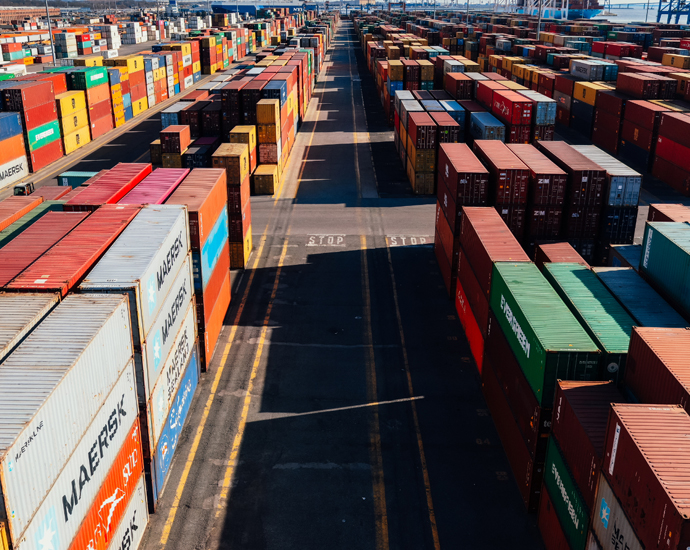What is Demurrage?
← Back
The concept of demurrage arising from leasing is a fee applied to containers that have expired by staying at the port or railway area longer than the time allotted to them. It can also be expressed as the fee paid by the tenant.
The concept of demurrage arising from leasing is a fee applied to containers that have expired by staying at the port or railway area longer than the time allotted to them. It can also be expressed as the fee paid by the tenant. As many ports and terminals are hubs of activity that transport large-scale goods loaded with cargo every day, containers taking up extra space can affect the efficiency of operations here.
A demurrage fee, which can also be thought of as a warehousing fee, is a way of encouraging shippers to move their goods out as quickly as possible or to avoid bringing them into port too early. In such a case, the consignor should avoid bad planning, calculate customs clearance delays, and create a suitable activity for the rental period by considering port congestion and possibilities.
How is the Demurrage Fee Calculated?
When calculating the demurrage fee , the day following the unloading of the ship is taken into account, and the duration until the day the empty container is delivered to the terminal is determined. The demurrage fee, which occurs after the lease term given on the basis of the load, is calculated and invoiced over the tariff in the determined slice. Generally, shipments arriving at ports are given a free storage period of about 4 to 7 days.
An example can be given to better understand the demurrage cost:
We have a container that arrived on January 17 and will be discharged on February 6. This means it will take 20 days to empty the container. If you have 4 free days, we will be charged for 16 demurrage days. Although the prices and given times for the demurrage cost vary from country to country, for example, it is possible for a 16ft container to cost 60 dollars per day in the first 8 days, and up to 120 dollars per day after 8 days.
What are the Causes of Demurrage?
A consignor may be subject to demurrage due to various reasons that are under his control or not. We can list these reasons as follows:
» If the person responsible for receiving the goods is unaware of the arrival time or date of the container and therefore cannot complete the customs procedures on time, he/she is subject to a demurrage fee.
» It is possible for the buyer to not be able to deliver on time within the given delivery time.
» If the documents are wrong, incomplete or fake during the transactions made by the buyer, a demurrage fee is charged.
» The fact that the received cargo does not match the sales order is also taken as one of the reasons.
» It may be the case that the container is delayed due to daily inspection or waiting time.
» It is possible to charge a demurrage fee as a result of communication problems and some disagreements between the sender and the receiver.
How to Avoid Demurrage Fee?
Although it is very difficult to avoid when it comes to demurrage fee, it is possible not to be exposed to this fee if attention is paid. Here are the situations we should avoid:
» Plans should be made in advance and the buyer should be arranged as early as possible. In this way, it will be much easier to reach an agreement with the truckers for the container in the right conditions, at the right frequency and at the most affordable cost.
» Alternatives should also be taken into account when establishing a plan. For this reason, you should always have other plans during shipment. In case of delays that may arise, keeping a second truck driver in reserve is a great advantage.
» You should be aware of the regulations at the departure and destination point of the shipment. In order to obtain information about the customs process and to know where the shipment is, it is necessary to keep in touch with the person providing the transportation.
» Transparent and clear information should be given to all parties in order to avoid delays or misunderstandings that may arise during the delivery.

 HONEST
HONEST Eğitim Portalı
Eğitim Portalı Müşteri Portalı
Müşteri Portalı Bize Ulaşın
Bize Ulaşın